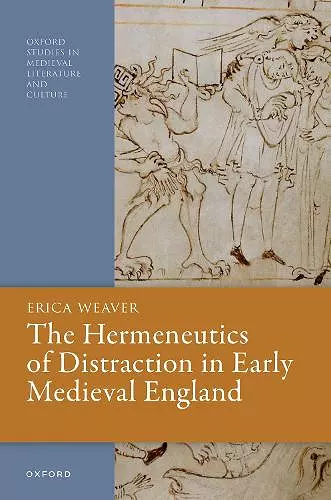The Hermeneutics of Distraction in Early Medieval England
Format:Hardback
Publisher:Oxford University Press
Published:19th Mar '25
£77.00
Supplier delay - available to order, but may take longer than usual.

Distraction is now too easily and often considered a metonym for modern consciousness, but it was also a medieval concern, which posed a particular threat to religious life. Distraction opened the door to all other temptations, and—most disturbingly of all for the monastic communities at the heart of this book—it invalidated central devotional acts like reading, praying, and reciting the Psalms. Far from an innocuous sensation, distraction posed a significant spiritual danger. It also generated powerful countervailing responses in literature, pedagogy, and religious observance, profoundly shaping literary interpretation in the process. The Hermeneutics of Distraction in Early Medieval England writes this cultural and intellectual history. It comes at the topic of distraction through the study of the affective practices of a particular community of writers and readers: the influential circle of Æthelwold (Bishop of Winchester, 963-984). It also explores the implications of this focused study both for a larger historical context (Western monasticism from the fifth century to the twelfth) and for the history of a unifying concept (the experience of distraction). In doing so, this book reveals that the pervasive threat of distraction precipitated the development of several different tactics for reorienting attention, especially in the tenth-century monastic correction movement traditionally known as the Benedictine Reform, which reshaped monastic life across Europe. From the development of the 'hermeneutic style' to new textual and theatrical modes, these correctional projects make visible an enduring problem, present from the beginnings of monasticism and persisting throughout its long history.
ISBN: 9780198922094
Dimensions: 240mm x 160mm x 20mm
Weight: 542g
256 pages